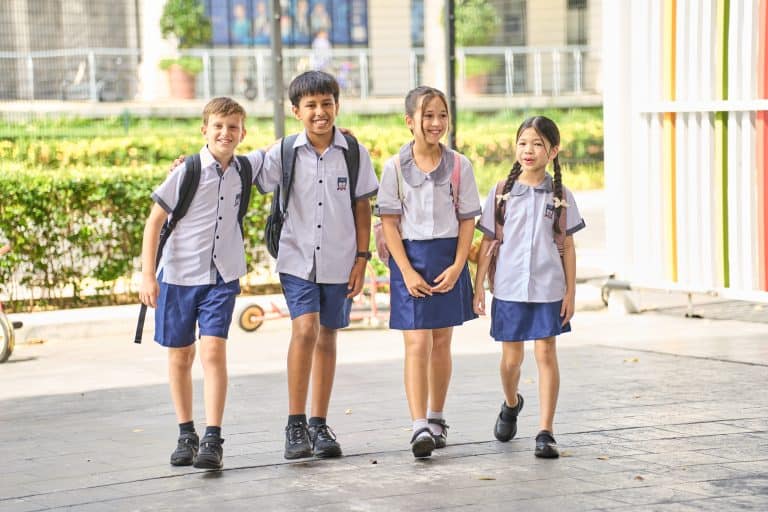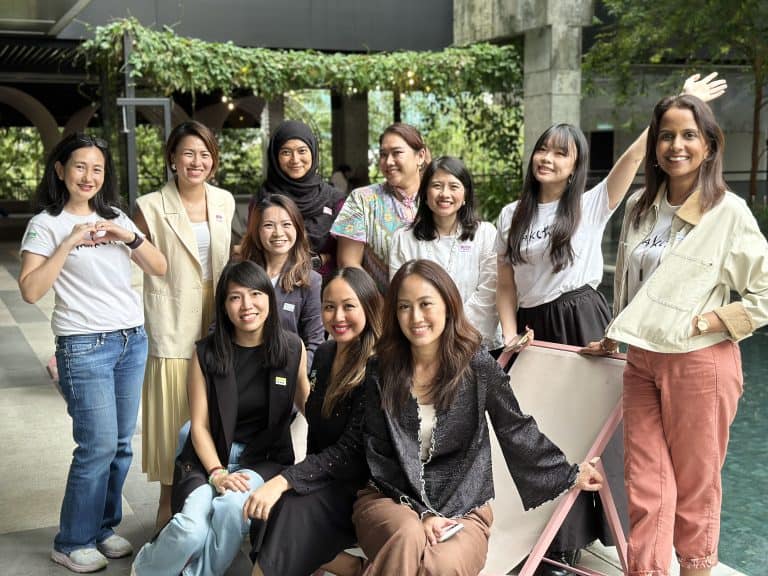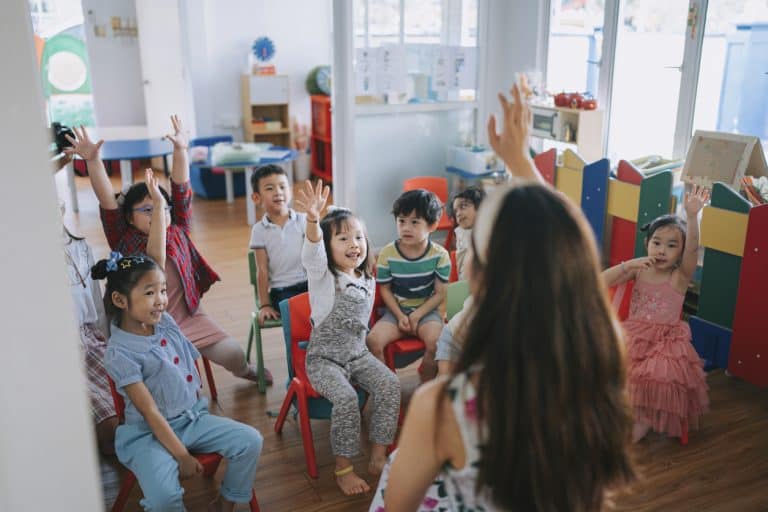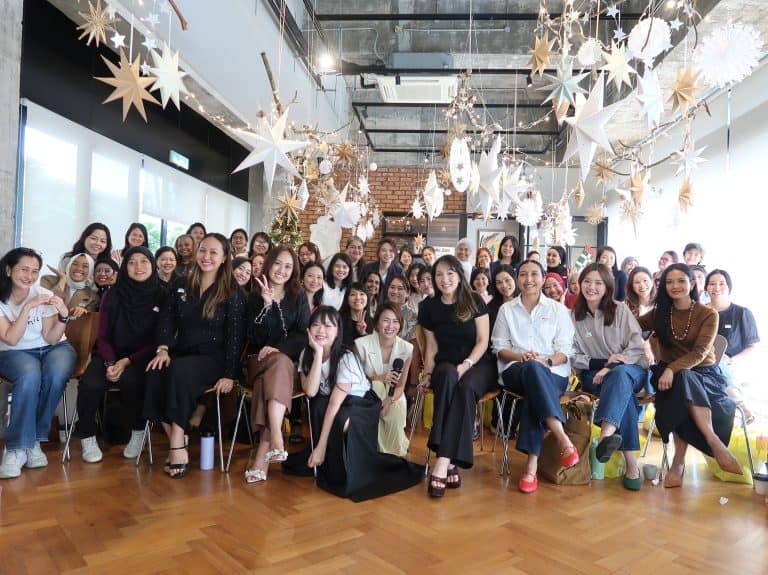“My anxiety reached a point when even hearing the phone ring would make my heart race,” recalled Alexandra Wong. What began as a loving act of responsibility slowly evolved into something far heavier: a relentless emotional strain that would culminate in a mental health breakdown.
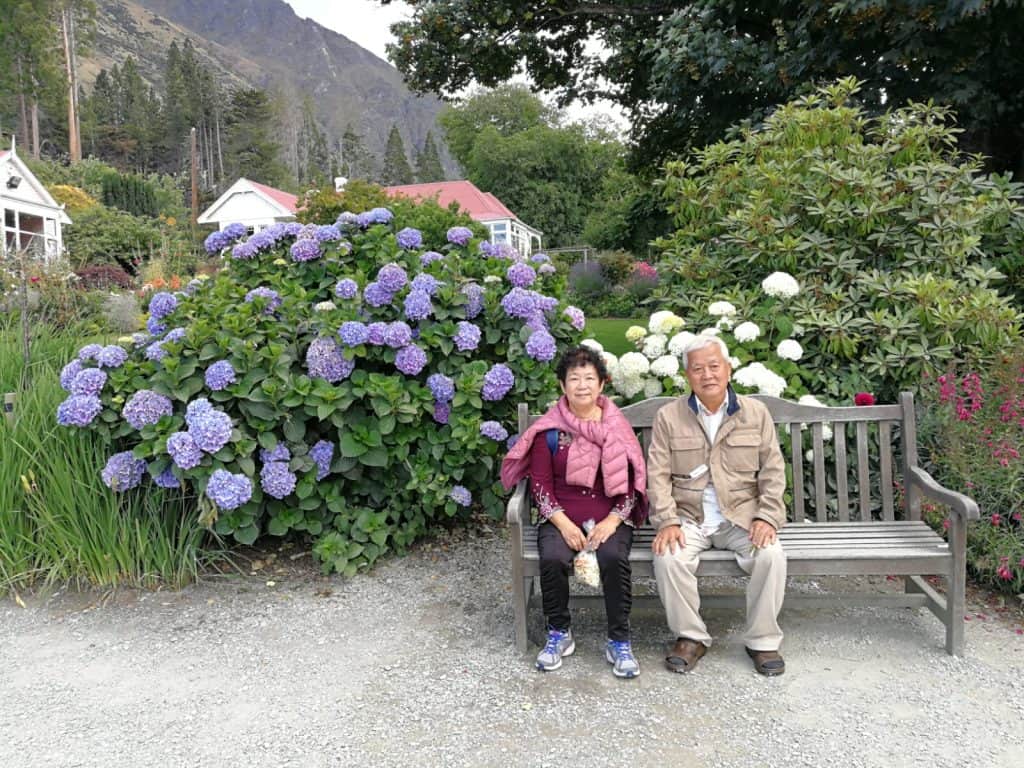
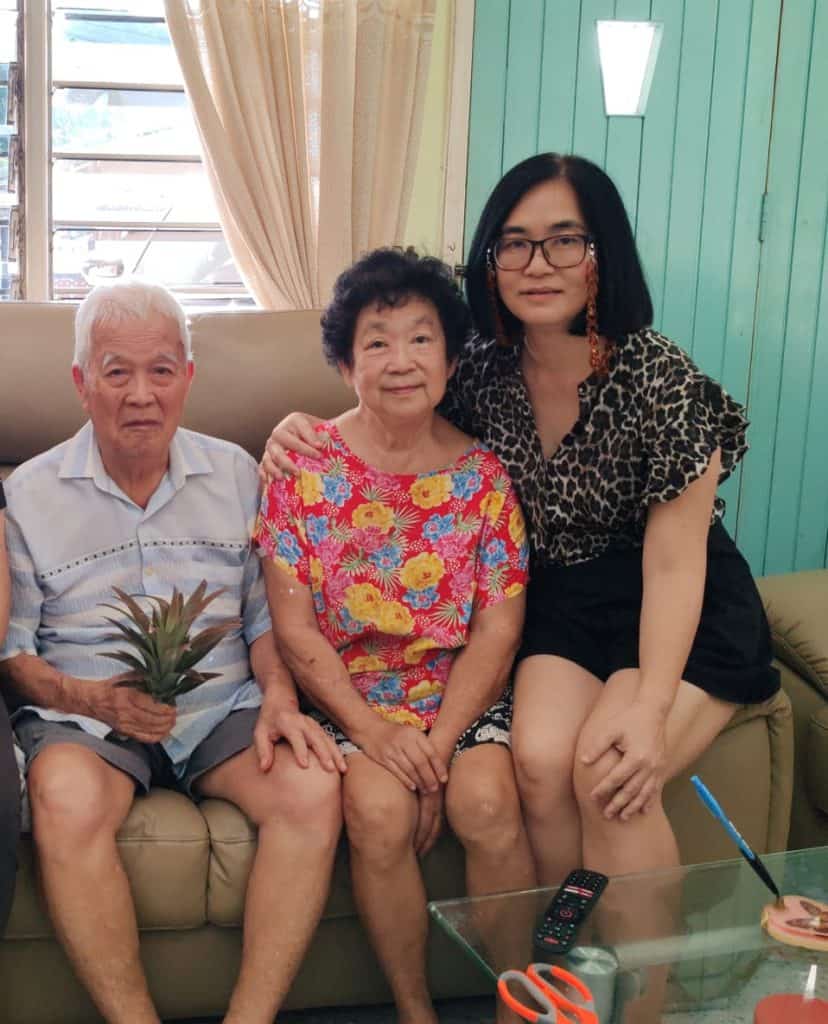
Alexandra’s parents are based in Ipoh while she resides in Penang with her husband.
As her 82-year-old father’s mobility declined and her 78-year-old mother faced mounting health issues, Wong — living in another city — found herself coordinating home care, managing emergencies, and making medical decisions from afar.
The unrelenting pressure led to persistent fatigue, loss of appetite, and emotional withdrawal. Her caregiving journey underscores the often-overlooked emotional toll borne by adult children, especially those navigating care from a distance.
Daughters In The Trenches
Traditionally, eldercare in Malaysia has been shouldered by families, particularly daughters. But that model is showing strain. With family sizes shrinking, more women joining the workforce, and widespread urban migration, many caregivers find themselves stretched impossibly thin.
A 2018 study revealed that Malaysian women still carry out 63.6% more unpaid care work than men. The cost? Missed promotions, lost income, and deteriorating mental health.
“We keep asking ourselves: who will care for us when we grow old? But maybe the more urgent question is — who’s caring for the caregivers now?” questions Wong.
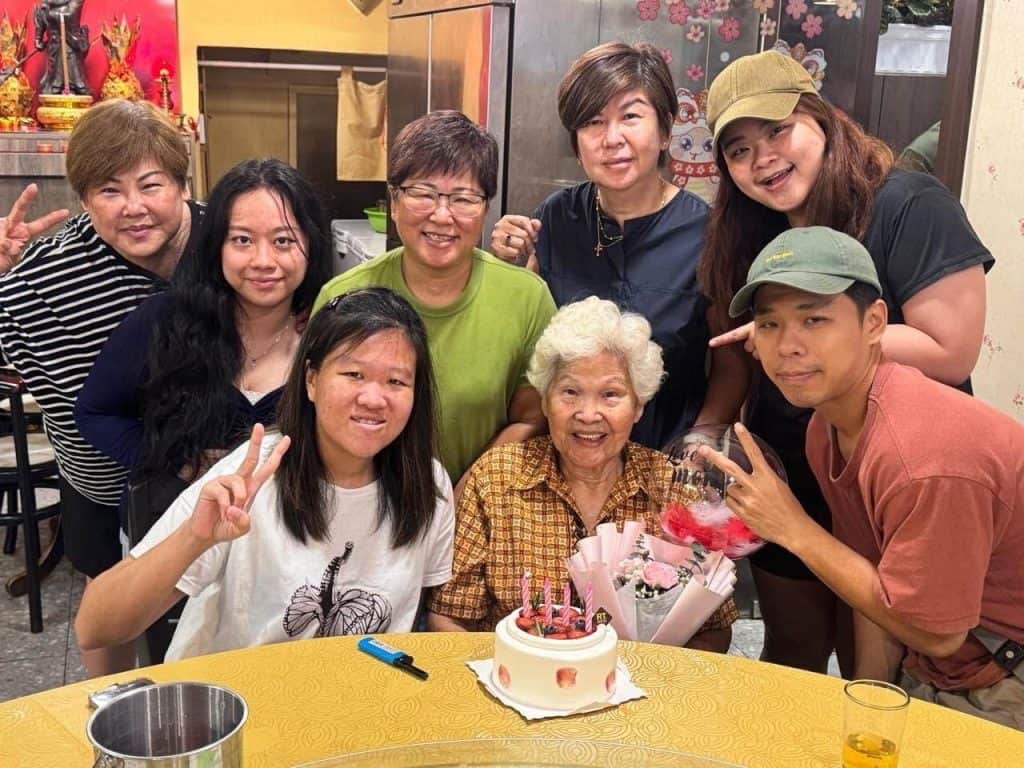
Carmen Phang considers herself one of the lucky ones. She has supportive siblings and extended family who help care for their 94-year-old mother, who is battling breast cancer and now lives with Phang full-time. With her daughter grown and independent, Phang has space in her home — but not always in her schedule.
Her house is now a revolving door of medical appointments, nurses, and well-meaning visitors. Privacy is a luxury, and her days are rarely her own.
However, she chooses to focus on the positives. “It takes patience, empathy, and lots of understanding,” she says. “But the one-on-one time with my mum has helped restore our relationship.”
Her siblings have stepped up, helping in their own ways—from hospital visits to financial support. Phang’s message to fellow caregivers is simple: “You don’t have to do it alone.”
But too many still do.

When the System Fails
When the caregiving burden becomes too heavy or support simply isn’t there, the consequences can be devastating.
Over a span of three years, Hospital Kuala Lumpur reported a 50% increase in patient abandonment, with cases rising from 239 in 2020 to 358 in 2023 especially during the festive seasons, according to local media. Nearly half of those left behind were seniors aged 60 and above.
Caregiver burnout is a real struggle. Consultant psychiatrist Dr Wan Izwin Wan Hassan, who specialises in geriatric psychiatry, sees the emotional toll firsthand. “These emotions are normal,” she says of the resentment, guilt, and loneliness caregivers often feel. “What’s important is acknowledging them and seeking help when needed.”
The Department of Statistics Malaysia (DOSM) projects that the percentage of citizens aged 65 and above will rise from 8.1% in 2024 to 14.5% by 2040.
With time ticking, has the government truly acted on the urgent need for policies and protections for our ageing population?
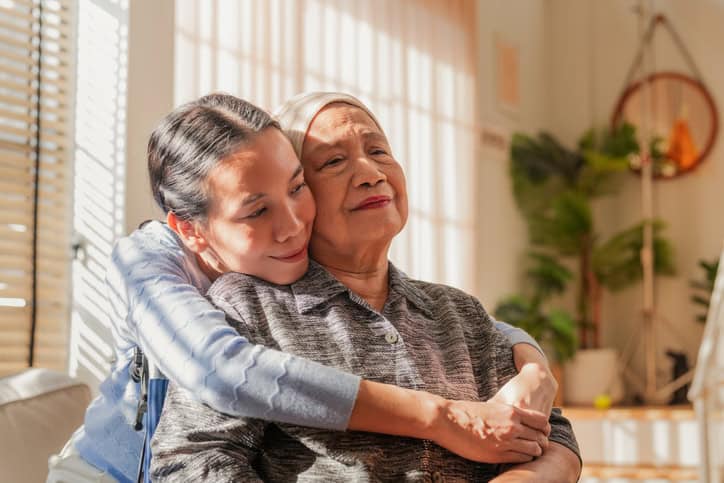
What Malaysia Needs for Senior Citizens
Prof Dr Shahrul Bahyah Kamaruzzaman, president of the Malaysian Healthy Ageing Society (MHAS) – a non-profit organisation dedicated to educating stakeholders on numerous healthy ageing issues, said:
“To truly support our ageing population, the Malaysian government needs to prioritise an integrated healthcare system that ensures seamless care—especially for seniors managing chronic conditions. Right now, services are too fragmented, making it difficult for caregivers to navigate.
“At the same time, community-based programmes like Pusat Activiti Warga Emas or PAWE, can promote active ageing and serve as vital support hubs. Together, these efforts can uplift not just older Malaysians, but society as a whole,” she adds.
Awaiting The Senior Citizens Bill: A Legal Framework for Dignity
Malaysia is also still awaiting the much-needed Senior Citizens Bill to come into effect, with it scheduled to be tabled in Parliament next year. The bill is essential to ensure the Malaysian elderly population is treated with dignity, respect, and fairness across all facets of society.
The Malaysian Bar has urged the government to address among other provisions in the bill:
- Legal protections that guarantee the right to healthcare, safety, and dignity for senior citizens.
- Accountability for abuse: emotional, physical, and financial mistreatment must be met with clear consequences.
- Community-based care: more trained caregivers, regulated eldercare facilities, and inclusive mental health and legal aid support.
- Mandatory licensing of care homes to protect residents.
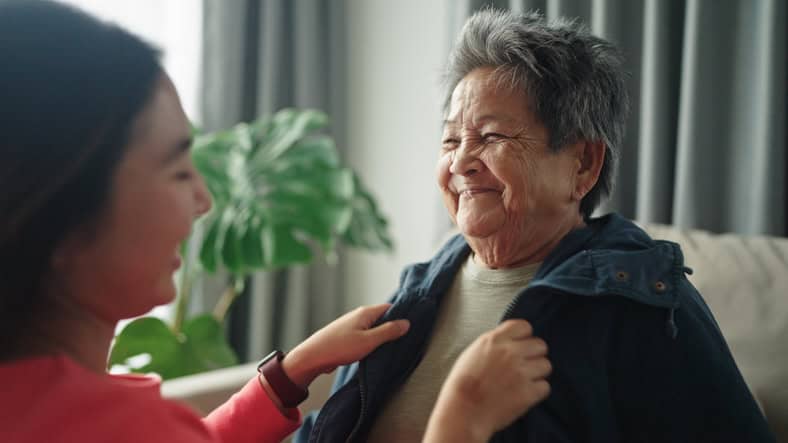
What Caregivers Say Must Change
Caregivers and experts who spoke to makchic also identified several key reforms they believe are essential to strengthening Malaysia’s elder care system:
- Expanding access to affordable, home-based care services — especially in rural and semi-urban areas.
- Investing in long-term geriatric care facilities and training more healthcare personnel.
- Implementing cash-for-care allowances and inclusive social safety nets like i-Suri for all caregivers.
- Recognising and compensating unpaid care work through tax relief, EPF contributions, and caregiver leave policies.
While these reforms will help caregivers shoulder their burdens, there is another kindlier aspect of support they long for: To be seen and heard.
Helping Caregivers Cope
As a way to deal with her mental health breakdown, Wong eventually sought psychiatric help. Through a combination of medication, creative outlets like writing, and Pilates, she began to navigate a path toward recovery. A key source of support came in the form of a Facebook group for caregivers, where she found not just advice, but solidarity.
“Reading others’ experiences helped me realise I wasn’t alone,” she said. “That group was a lifeline.” Eventually, a connection through the group led her to two reliable caregivers, easing some of the logistical burdens and allowing her to focus on her own healing.
“I’ve learned that caregiving isn’t just about looking after someone else,” she reflected. “It’s also about remembering to care for yourself too.”

Who Will Help Care For Us?
The elderly are not just an afterthought that require charity; rather, they have their own rights and contributions to societal development.
If Malaysia continues to treat elder care as a private, invisible burden, we risk failing not only an entire generation of seniors — but also the ones who care for them. Real support means more than moral expectations; it means infrastructure, policy, and a national commitment to dignity in ageing.
Because as Wong reminds us: before we ask who will care for us when we grow old, we must ask — who’s caring for the caregivers now?
By Hemala Devaraj
Hema is a writer whose personal journey as a caregiver to her parent deeply shaped her voice and perspective. This article reflects both the challenges and quiet triumphs of caregiving, offering comfort and connection to others walking a similar path.



